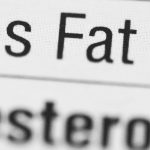Every week in the UK, 680 people suffer a stroke as a result of complications from type 2 diabetes and 530 people suffer a diabetes-related heart attack, according to research by Diabetes UK.
That’s a huge number of early deaths, many of which are caused by avoidable complications.
But as cardiovascular issues are also associated with high levels of cholesterol, is there a link between diabetes and cholesterol?
Cholesterol is a type of fat that circulates around the body in the bloodstream. There are several types of cholesterol that your body packs with proteins and other fats to carry around the body as lipoproteins: LDL (low-density lipoprotein) is often referred to as ‘bad cholesterol’ as it delivers cholesterol to the artery walls, which over time can lead to buildup, blockages and, if a blockage bursts, heart attacks or stroke.
HDL (high-density lipoprotein) is ‘good cholesterol’ as it takes cholesterol from the artery walls and delivers it to the liver where it is disposed of. As a result, the higher your HDL levels, the lower your risk of cardiovascular problems.
Because there are no symptoms with high cholesterol, it’s important to understand the individual results you receive if you do a cholesterol blood screening test such as DocHQ’s at-home Cholesterol Check. If certain cholesterol levels are too high, it can increase the risk of cardiovascular problems, including heart attack or stroke. Controlling your cholesterol therefore leads to a lower risk of cardiovascular disease.
Often, risk factors go hand in hand. High blood glucose levels associated with type 2 diabetes can cause damage to your blood vessels, while high cholesterol can cause damage via the buildup of plaque deposits. These can then combine together, making it harder for blood to flow around your body.
One way to reduce your risk of diabetes is by eating a healthy diet. Simple ways to do this include reducing your consumption of the following foods:
1. Ultra-processed foods – highly processed foods contain high levels of salt, fats, additives, stabilisers and emulsifiers, which all have negative effects on your body.
2. Red meat – studies have found that women who eat the most red meat, approximately a serving per day, have a 20% higher risk of diabetes than those who eat around one portion a week.
3. Salt – consuming too much salt can lead to high blood pressure, which many people with diabetes also suffer from.
4. Sugary drinks – try to completely eliminate sugar-sweetened drinks from your diet.
5. Trans fats – these fats are found in many processed foods, and have been linked to an increased risk of diabetes and heart disease.
And increasing your consumption of the following:
1. Coffee – drinking two cups a day cuts your diabetes risk by 42% compared to drinking no coffee at all.
2. Nuts – women who eat five portions of nuts or peanut butter a week have a 20-30% lower risk of diabetes than those who don’t eat any nuts.
3. Lean protein – consuming a portion of lean protein with a meal, such as beans, fish or skinless chicken can help increase the production of insulin post-meal as well as helping reduce the surge in blood sugar.
4. Oats – porridge, for example, is a great source of soluble fibre.
5. Unbroken’ grains – aim to eat more whole grains such as brown rice, millet and barley in their least processed state.
One good dish you can make at home is a low-in-saturated-fats, meat-free Chilli ‘Non’-Carne. Here’s the recipe:
Chilli Non-Carne
MAKES 8 SERVINGS
Ingredients
1 chopped onion
2 cloves garlic, minced
3 tablespoons olive oil
450g finely chopped courgettes
220g finely chopped carrots
2 cans whole tomatoes, undrained (no salt added)
1 can chopped tomatoes, undrained (no salt added)
3 cans kidney beans (one undrained, two drained and thoroughly rinsed)
2 tablespoons chilli powder
1⁄4 teaspoon dried basil
1⁄4 teaspoon dried oregano
1⁄4 teaspoon cumin
Method
1. In a large pot, sauté onion and garlic in olive oil until soft.
2. Mix in courgette and carrots until well-blended. Cook for about 1 minute over low heat, stirring occasionally.
3. Stir in tomatoes and kidney beans. Bring to a boil.
4. Add spices. Reduce heat and simmer for 30 to 40 minutes or until thick.
5. Serve and enjoy!



